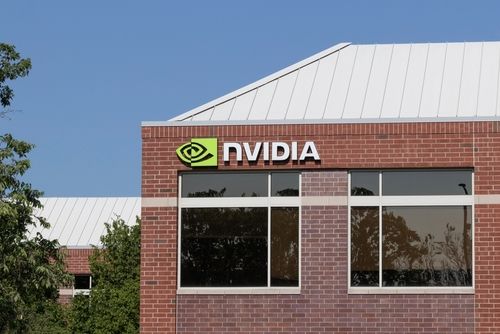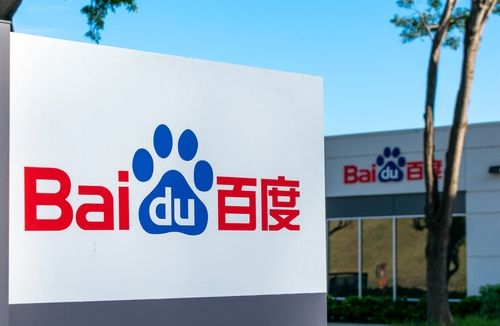SoundHound AI Stock Sinks 17% Despite Beating Earnings and Revenue Estimates and Raising 2024 and 2025 Guidance


Shares of SoundHound AI (NASDAQ: SOUN) dropped 17.1% on Wednesday, following the artificial intelligence (AI)-powered voice solutions provider's release on the prior afternoon of its third-quarter 2024 report.
The company beat Wall Street's consensus estimates for revenue and earnings, and management increased its revenue outlook for both full-year 2024 and 2025.
So, why did the stock decline?
The stock sell-off is probably due to a couple of related factors. The first one is that investors likely had very high -- indeed, too high -- expectations going into the release because the stock had run up considerably since Monday, Nov. 4. Through Tuesday, it gained a whopping 49% over this week-plus period, compared with the S&P 500's 4.8% rise.
The second reason likely has to do with management not issuing some type of profitability guidance for 2025. Sure, it increased its revenue outlook for next year, which is a positive. But it's not all that challenging for companies to grow revenue while losses are expanding -- and, indeed, SoundHound's year-over-year operating loss and net loss did widen in the third quarter. (Its losses per share narrowed, but that's only because the number of shares increased by 49% from the year-ago period.)
As background, SoundHound AI shares surged (as you'll see in the below stock chart) following AI chip leader Nvidia's disclosure in February, via a Securities & Exchange Commission (SEC) filing, that it owns a small stake in the company. Nvidia owns about 1.73 million shares, which gives it an ownership stake of less than 1%. Nvidia's tiny ownership stake is not a good reason to buy shares of SoundHound.
SoundHound AI's key numbers
Metric | Q3 2023 | Q3 2024 | Change |
|---|---|---|---|
Revenue | $13.3 million | $25.1 million | 89% |
GAAP operating income | ($14.5 million) | ($33.8 million) | Loss widened 133% |
GAAP net income | ($20.2 million) | ($21.8 million) | Loss widened 8% |
Adjusted net income | ($13.6 million) | ($15.0 million) | Loss widened 10% |
GAAP earnings per share (EPS) | ($0.09) | ($0.06) | Loss narrowed 33% |
Adjusted EPS | ($0.06) | ($0.04) | Loss narrowed 33% |
Data source: SoundHound AI. GAAP = generally accepted accounting principles.
The year-over-year revenue growth has been helped by acquisitions over the last year, though we do not know to what degree. The company's latest acquisition was Amelia in the third quarter, as we'll explore in a moment.
Wall Street was looking for a GAAP loss of $0.07 per share on revenue of $23 million, so SoundHound exceeded both expectations.
For the first nine months of 2024, SoundHound used cash of $75.8 million running its operations, an increase from the $54.4 million it used in the year-ago period. It ended the period with cash and cash equivalents of $136 million and long-term debt of $39.7 million.
Acquisition of Amelia
In the third quarter (August), SoundHound acquired Amelia, which it said "significantly expend[ed] its scale and reach in conversational AI across new verticals and hundreds of enterprise brands." More specifically, at the time of the acquisition, Amelia had customer service contracts with multinational companies in the finance, insurance, retail, and healthcare industries.
SoundHound paid $80 million to purchase Amelia in a combination of cash and shares. In 2025, SoundHound expects that Amelia will contribute over $45 million to its revenue. It also expects the deal to be accretive to its earnings in the second half of 2025.
What the CEO had to say
Here's what CEO and co-founder Keyvan Mohajer had to say in the earnings release:
This is SoundHound's largest quarter on record as the company takes its first steps into important new verticals. Our increased scale, combined with incredible market enthusiasm for conversational AI, is allowing us to execute on the company's vision. We believe that voice is the "killer app" for applied generative AI. Thanks to our best-in-class technology, mastery of complex vertical integrations, and proprietary AI software, SoundHound is ideally positioned to capitalize on this huge and growing opportunity.
2024 and 2025 revenue guidance raised
Full-year 2024 guidance:
- Revenue of $82 million to $85 million, up from its prior outlook of over $80 million. At the midpoint of this range, this would equate to 82% annual growth.
Full-year 2025 guidance:
- Revenue of $155 million to $175 million, up from its prior outlook of over $150 million.
The company did not issue any earnings or profitability-related guidance for either year.
A stock worth watching -- but keep an eye on liquidity and profitability metrics
SoundHound AI stock is worth watching because the company operates in an artificial intelligence space that has very strong growth potential.
However, investors need to closely monitor the company's progress toward profitability, which did not move in the right direction this quarter on a year-over-year basis.
Similarly, investors should keep a close eye on SoundHound's liquidity situation. At its current cash-burn rate ($75.8 million over the first nine months of 2024), the company's cash and cash equivalents ($136 million) would last just over five quarters, or just over one year and one quarter.
Granted, the company could issue and sell additional shares, but that's not a solution without a downside for existing investors. Raising money in this way dilutes the ownership stakes of existing shareholders.







